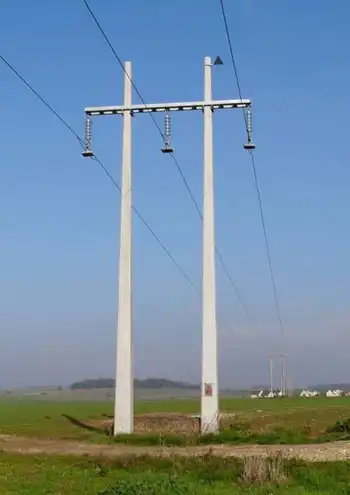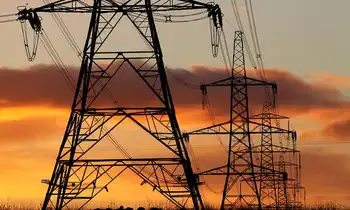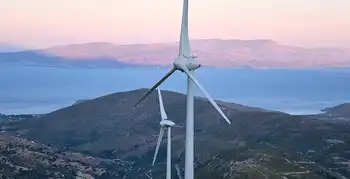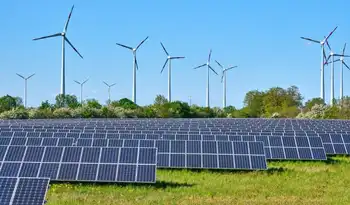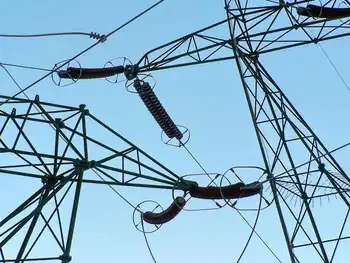Climate bill unfair to Iowa, utilities say
By Des Moines Register
Protective Relay Training - Basic
Our customized live online or in‑person group training can be delivered to your staff at your location.

- Live Online
- 12 hours Instructor-led
- Group Training Available
MidAmerican Energy Co. and other Iowa utilities say the climate legislation is unfairly skewed toward consumers on the east and west coasts, where power companies are less dependent on coal to produce electricity.
The bill is a top priority of President Barack Obama. But Democratic leaders in Congress have been struggling to get enough votes for the proposal, in part because of objections from Rep. Leonard Boswell, D-Ia., and others who are worried about the effect on electric rates.
William Ferhman, chief executive of MidAmerican, said, "This bill as it sits today will have a tremendous negative impact on our customers."
Alliant Energy Corp., rural electric cooperatives and municipal utilities have similar concerns.
But Nathaniel Baer, who follows energy issues for the Iowa Environmental Council, said MidAmerican is paying the price for its heavy reliance on coal.
The utility's newest power plant, at Council Bluffs, burns coal. The plant was built after the effect of coal on the climate was well known, Baer said.
"It's fair to ask them to be held accountable for that action," he said.
The bill's supporters say the limits on greenhouse gases are urgently needed to prevent global warming.
Poor and moderate-income people would be protected from rate increases with money raised by sale of emission credits.
Employment in wind turbine factories and in other alternative-energy businesses also would increase as utilities switch from coal, advocates of the bill say.
"By creating incentives to move away from high-emitting sources like coal, you create incentives for people to invest in renewable technologies," said Rep. Bruce Braley, D-Ia., who is a member of the House Energy and Commerce Committee, which approved the legislation in May.
The bill would set limits on emissions of greenhouse gases, including the carbon dioxide produced by coal-burning power plants.
The bill would require utilities and other companies to obtain allowances for their carbon emissions. Allowances would be distributed free in the early years, but utilities that do not get as many as they need would have to buy them.
The problem for Iowa is that half the allowances given to utilities would be divided based on the utilities' sales rather than their carbon emissions.
That part of the distribution plan would favor utilities that rely heavily on nuclear energy or hydropower over utilities that are more dependent on coal. Utilities with excess credits could sell them to companies like MidAmerican that need them.
A Seattle utility stands to receive 29 times the number of allowances that it will need, while MidAmerican would get only half of what it would require in 2012, MidAmerican officials told the House committee.
The cost to customers of MidAmerican and other Iowa utilities would depend on how the allowances are traded and what the companies have to pay for them.
MidAmerican says electric rates could go up 25 percent.
Iowa's rural electric co-ops could see their rates going up 11 to 18 percent, said Allan Urlis of the Iowa Association of Rural Electric Cooperatives.
Alliant Energy, another utility serving Iowa, expects double-digit rate increases, depending on the price of the allowances, spokesman Rob Crain said.
Utilities worry that speculation in the allowance market could create wild swings in prices of the credits.
The bill's allowance program "unfairly impacts not only our customers but all Midwestern electric consumers," Crain said.
House leaders have been struggling to come up with the votes needed to win passage on the House floor.
Few Republicans are expected to support the proposal, forcing Democratic leaders to round up votes from rural and Midwest lawmakers who have concerns about the bill's effects on electric rates as well as unrelated concerns being raised by farm groups.
Leaders of the House Energy and Commerce Committee have been negotiating with the chairman of the House Agriculture Committee, Rep. Collin Peterson, D-Minn., to address some of the utilities' concerns.
MidAmerican's open criticism of the bill represented a break with the rest of the industry, which had worked with the House committee to soften the impact of the emission controls.
The Edison Electric Institute, a trade association that represents investor-owned utilities, contends that the credit-allocation formula was crafted to treat consumers across the country as equitably as possible.
"While any climate change policy will carry a significant price tag, the allowance allocation approach in this bill will minimize the economic impact on electricity customers nationwide," said John Farrell, an executive with Dominion Resources, a utility in Richmond, Va.
Braley said the bill already represented a substantial compromise among energy interests, including in the way the emission credits would be distributed.
The American Wind Power Association is unhappy because new annual mandates for renewable power usage that would be created by the bill are not as the group wanted.
Boswell has raised several concerns with the bill, including the effect on electric rates.
A memo circulated by his staff last week said the allocation formula was "heavily biased against the Midwest and will lead to windfall profits for companies who rely less on fossil fuels than most Midwest companies."
Iowa's third House Democrat, Dave Loebsack, said in a statement he was "meeting with Iowans on both sides of the issue and will be working to ensure Iowa consumers are treated fairly."
The bill's fate in the Senate is not clear. Democratic leaders there decided to wait for the House to take the lead on greenhouse-gas controls, while senators focus, instead, on other energy issues, including renewable power mandates.






